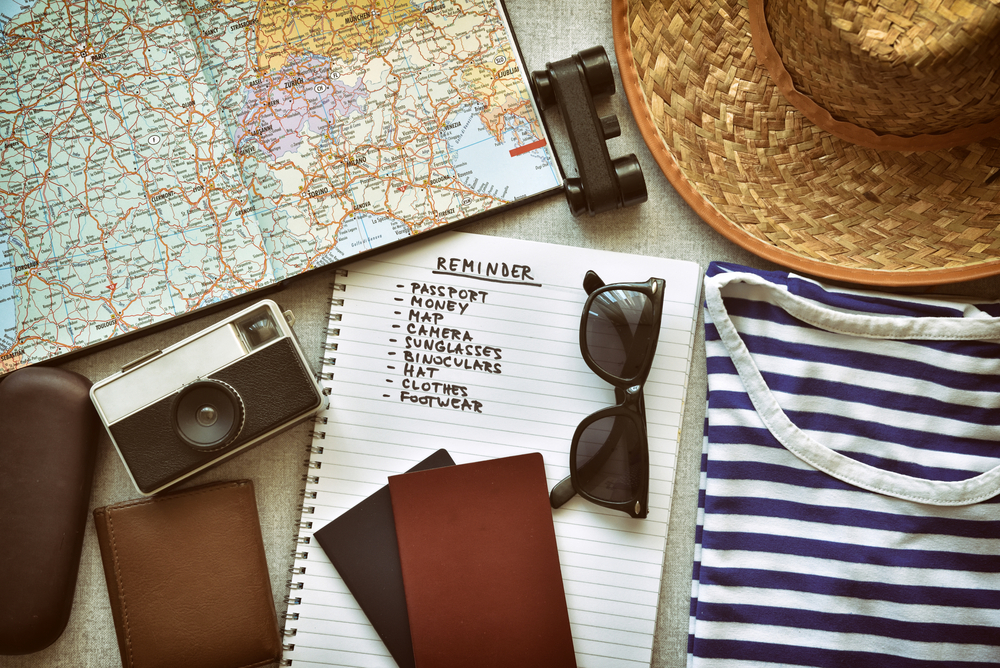
Are you dreaming of jet-setting off to a far-flung destination? Planning an overseas trip can be exciting, but taking the right steps to ensure a safe and stress-free holiday is essential. Read on to discover what you must do before taking off for your overseas adventure.
Research your destination
Check the travel advice and warnings for the country you plan to visit on the New Zealand government’s SafeTravel website. You’ll be able to access up-to-date information on the safety and security situation in different countries and be aware of any health concerns or natural disasters that could impact your travel plans.
Check your passport
If you don’t want to run into complications at border control, make sure your passport is valid for at least six months beyond the date of your planned return to New Zealand. If your passport is due to expire, organise to renew it before you travel.
Organise relevant visas
Check whether you need a visa to enter your destination country or any country you will transit through. Get in touch with your travel agent or the Embassy or High Commission of each country to check visa requirements. Be sure to do this well before your departure date to allow time for necessary visa applications.
Buy travel insurance
It’s essential to consider travel insurance for any overseas trip. It can cover you for unexpected events, such as medical emergencies, trip cancellations, lost or stolen luggage, and other travel-related mishaps. Before you buy travel insurance, read the policy carefully to ensure it covers everything you need.
Keep these tips in mind when choosing the best travel insurance:
Check the coverage limits
Before purchasing travel insurance, carefully review the policy to ensure adequate coverage for your trip. This includes checking the coverage limits for medical expenses, trip cancellations, lost or stolen luggage, and other travel-related mishaps. Make sure the policy covers any activities you plan to do on your trip, such as adventure sports or extreme activities.
Look for exclusions
Exclusions are events or circumstances that are not covered by the policy. Read the policy carefully to understand what is not covered, such as pre-existing medical conditions, high-risk activities, or travel to certain countries or regions.
Knowing what is excluded can help you avoid any surprises if something unexpected happens on your trip.
Compare policies and prices
Do your homework and compare a range of policies from different providers. Travel insurance policies can vary widely in terms of coverage and price, so consider factors like coverage limits, deductibles, exclusions, and the policy’s price. Find a balance between comprehensive coverage and affordability — the cheapest policy may not provide the best coverage.
Apply for an International Driving Permit (IDP)
You may need an International Driving Permit (IDP) if you plan to drive on your trip.
The IDP is a document that allows you to drive legally in most other countries. It is not a licence on its own; you must carry your current New Zealand driver’s licence with you as well. The New Zealand Automobile Association is the sole provider of IDPs for New Zealand driver’s licences, so you’ll need to apply through them.
Notify your bank
Avoid having your credit card frozen or other issues by notifying your bank if you plan to use your credit or debit card overseas. Some banks may also charge fees for international transactions, so check with your bank before you travel to avoid surprises.
Register with Safe Travel
Before embarking on your overseas trip, register your travel and contact details with SafeTravel.
Once you’ve registered your travel plans, you’ll receive safety updates and travel alerts from SafeTravel. This includes warnings about natural disasters, civil unrest, and other potential risks to your safety. If you get caught up in a state of emergency, the New Zealand government can use your registered information to reach you and provide assistance.
Pack your carry-on wisely
Finally, make a checklist of essential items to pack your carry-on bag. Your must-have items include travel documents, medication, contact lenses/glasses, travel-approved toiletries, first aid kit, laptop, devices and chargers, plus a change of clothes in case your checked luggage gets lost or delayed.
By following these tips, you can ensure a safe and enjoyable overseas trip. Bon Voyage!






